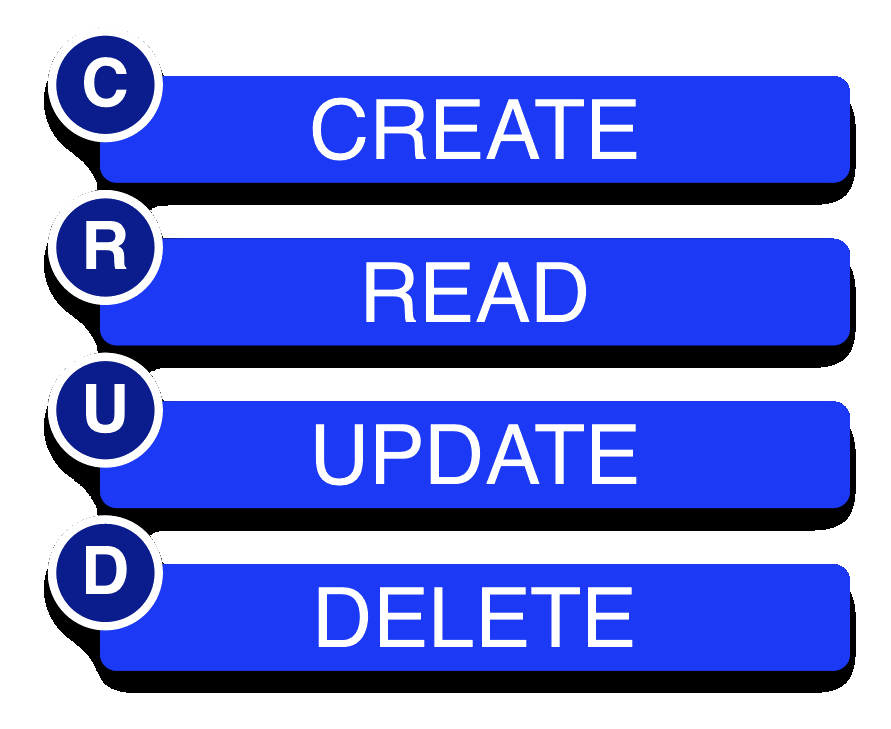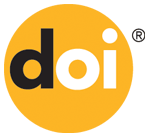Contribute to the DSpace Development Fund
The newly established DSpace Development Fund supports the development of new features prioritized by DSpace Governance. For a list of planned features see the fund wiki page.
Version 5.0
DSpace 5.0 is still in the planning stages and will be released sometime in early (likely January) 2015
Table of Contents:
New features in DSpace 5.0
| DSpace 5.0 ships with a number of new features. Certain features are automatically enabled by default while others require deliberate activation. The following non-exhaustive list contains the major new features in 5.0 | |
Easier Upgrading to 5.x from ANY previous DSpace version (1.x.x, 3.x or 4.x).
| |
Perform Batch Imports from the User Interface (in both XMLUI and JSPUI)
| |
XMLUI new features
| |
JSPUI new features
| |
REST API new features
| |
RDF Interface to support Linked (Open) Data (NEW)
| |
OAI-PMH interface enhancements / bug fixes
See DS-1649 by João Melo | |
Enhanced Thumbnail Quality (disabled by default)
See DS-2105 by Terry Brady with the support of Georgetown University | |
Bug fixes / improvements to Biblio-Transformation-Engine (BTE)
Kindly contributed by the Greek National Documentation Centre/EKT | |
Enhancements to DOI Support (disabled by default)
| |
Apache Solr libraries were upgraded for all interfaces (JSPUI, XMLUI, and OAI) | |
Add a place for third-party JARs / plugins to be "found" by DSpace (disabled by default)
See DS-2107 by Mark H. Wood with the support of IUPUI University Library | |
All objects now have metadata support
See DS-1582 by Mark H. Wood with the support of IUPUI University Library and Kevin Van de Velde with the support of @mire | |
Release TODO list
- Check documentation for all new features, add links to them the list of new features above. Incomplete list of missing docs:
- Current list of release blockers:
- Seems like we have 2 options:
- put Tomcat-specific code to JSPUI's web.xml
- just document this Tomcat 7-specific warning
On DevMtg 2014-11-05 we decided to document for RC1 and decide before RC2
- Update the list of contributors on the Release Notes in Documentation (see "TBA" in text)
- Draft up announcement for mailing lists
- Update DSpace.org
Automatic Solr upgrade
This has now been done in . This section is kept for archival purposes only.
Findings
Solr is distributed on Maven Central as a .war file, which includes the Lucene .jars. No Lucene version relevant to DSpace is available from Maven Central.
Solr is a wrapper for Lucene providing concurrency. Lucene can work with index files directly if we don't need concurrent access (i.e. before we start up Solr).
DSpace 1.6 was the first version to use Solr for statistics. In order to upgrade to DSpace 5, we need to upgrade the Solr index format in two steps. The second step is easy, upgrading from DSpace 3 (Solr 3.5) to DSpace 5 means just running the Solr 4.10.2 optimize command, which can be run even concurrently when the UIs are running. However, Solr 4.4 doesn't understand the legacy index formats used in Solr before 3.5. Therefore, in the first step, we need to use Solr 3.5 or Lucene 3.5 to upgrade from the older index versions to 3.5.
Suggested upgrade
We need to avoid the conflict of having both Solr 3.5 and 4.10.2 in the DSpace classpath. Therefore I suggest to run the first step before the Solr 4.10.2 webapp is started as part of DSpace 5.
To do that, we need to:
- Detect the oldest segment version using SegmentInfo.getVersion() of Lucene 4.10
- General logic is in this area of the CheckIndex script: https://github.com/apache/lucene-solr/blob/lucene_solr_4_10/lucene/core/src/java/org/apache/lucene/index/CheckIndex.java#L426
- If that oldest segment version is < 3.5 go to 3. Otherwise go to 5.
- get lucene-core-3.5.0.jar from Maven Central
- run the IndexUpgrader class of Lucene 3.5 (or optimize())
- start up DSpace in order to start up Solr 4
- run the IndexUpgrader class of Lucene 4.10.2
The manual steps would be:
wget "http://search.maven.org/remotecontent?filepath=org/apache/lucene/lucene-core/3.5.0/lucene-core-3.5.0.jar" -O lucene-core-3.5.0.jar # check index version, see table below: java -cp lucene-core-3.5.0.jar org.apache.lucene.index.CheckIndex /dspace/solr/statistics/data/index/ java -cp lucene-core-3.5.0.jar org.apache.lucene.index.CheckIndex /dspace/solr/search/data/index/ # upgrade index version: java -cp lucene-core-3.5.0.jar org.apache.lucene.index.IndexUpgrader /dspace/solr/statistics/data/index/ java -cp lucene-core-3.5.0.jar org.apache.lucene.index.IndexUpgrader /dspace/solr/search/data/index/ # check index version again, should be "version=3.5 format=FORMAT_3_1 [Lucene 3.1+]"
DSpace/Solr/Lucene versions and compatibility
| DSpace | Solr | Lucene | Used Lucene index version | version reported by CheckIndex | Supported Lucene index versions |
| 5.0 | 4.10.1 | 4.10.2 | 4.10 | (before optimize) versions=[4.4.0 .. 4.10.2] format= | |
| 4.0 | 4.4.0 | 4.4 | 4.4 | version=4.4.0 format= | |
| 3.0 | 3.5.0 | 3.5 | version=3.5 format=FORMAT_3_1 [Lucene 3.1+] | LUCENE_20, LUCENE_21, LUCENE_22, LUCENE_23, LUCENE_24, LUCENE_29, LUCENE_30, LUCENE_31, LUCENE_32, LUCENE_33, LUCENE_34, LUCENE_35 | |
| 1.8 | 3.3.0 | 3.3 | ??? | version=3.3 format=FORMAT_3_1 [Lucene 3.1+] | |
| 1.7 | 1.4.1 | 2.9.3 (2.9.3 951790 - 2010-06-06 01:30:55) | ??? | version=FORMAT_DIAGNOSTICS [Lucene 2.9] | |
| 1.6 | 1.3.0 | 2.4-dev (2.4-dev 691741 - 2008-09-03 15:25:16) | ??? |
Luke
https://code.google.com/p/luke/wiki/Compatibility
Java version
Minimum version of JVM required to run Luke 1.0.1 and earlier is 1.5.
Minimum version of JVM required to run Luke 3.x and 4.x is 1.6.
Lucene Java indexes
Luke 1.0.1 should be able to open indexes built using the following versions of Lucene-Java:
- 3.0.x
- 2.x (any version)
Starting with version 4.x Luke cannot open indexes created with Lucene 3.0.0 or earlier.
Starting with version 3.1.0 Luke releases will use the same numbering as Lucene releases, to avoid confusion.
Changes
The following changes have already been made to the codebase and will be released in 5.0. Please note that the below listing is dynamically generated, so it will be changing as we continue to add new features, improvements and bug fixes to the 5.0 release.
New Features in 5.0
General Improvements in 5.0
Bug Fixes in 5.0
Organizational Details
Release Coordination
Instead of a single "Release Coordinator", the DSpace 5.0 release will be managed by a "Release Team".
Release Team Leader
- Peter Dietz (Longsight)
Release Team Members
- Peter Dietz (Longsight)
- Hardy Pottinger (U of Missouri)
- Ivan Masár
- Mark H. Wood (Indiana University)
- Robin Taylor (University of Edinburgh)
- Pascal-Nicolas Becker (Technische Universität Berlin)
All Release Team membership information is as of November 4, 2014. Please volunteer (by emailing Tim Donohue), if you are interested in joining the team!
Timeline and Processing
Your contributions are welcome now! Code and documentation need not be finished, so long as it is working and we can all see what it is for. Time is set aside for fixing, polishing, and integration. We have some general Code Contribution Guidelines available, but you are also welcome to ask questions on the dspace-devel mailing list.
| Date | Milestone | What it means |
|---|---|---|
| October 06 | Deadline for feature pull requests | If you wish to contribute features to DSpace 5.0, you must submit a pull request by this date. |
| October 08 | Weekly developers' meeting devoted to review of feature pull requests for 5.0 | The entire hour's meeting will be used to discuss proposed features submitted by the deadline. |
| October 15 | Weekly developers' meeting devoted to review of feature pull requests for 5.0 | The entire hour's meeting will be used to discuss proposed features submitted by the deadline. |
| October 31 | Feature freeze | DSpace 5.0 is considered feature-complete on this date. Only bugfixes will be pulled between this date and final release. |
| November 6 | Release Candidate 1 tagged | A DSpace 5.0 Release Candidate will be available for wider testing. |
| November 10 | Release Candidate 2 tagged | 5.0-rc2 was released to address missing optional artifacts from 5.0-rc1 (Mirage2 and LNI) |
| November 10-21 | Testathon | Intensive public testing of the 5.0 Release Candidate is invited. The Release Team will focus on getting problems resolved. |
| December 19 | Release Candidate 3 tagged | An updated DSpace 5.0 Release Candidate will be available for wider testing. |
| January 15 | DSpace 5.0 is publicly released | DSpace 5.0 is released for download and general use. |
Release Process needs to proceed according to the following Maven release process: Release Procedure













